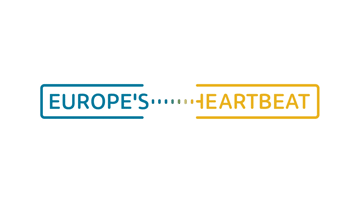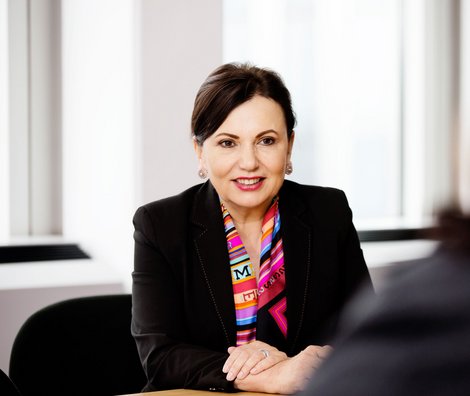An interview about 20 years of commitment to economic promotion and location development in NRW
Petra Wassner has been CEO of the NRW state economic development agency since 2001 and has positioned the location internationally. Now she is taking on new challenges.
- Ms. Wassner, when you were appointed CEO of the then Economic Development Corporation of the State of North Rhine-Westphalia (GfW) in March 2001, female managers were something of a rarity. What did that mean for you in your day-to-day work?
It was a challenge at first, both internally and externally. At that time, I was working in a completely male domain. I first had to earn my position; professional expertise and fair business practices were the lesser tasks. As a consequence, the advancement of women in companies became an issue I was committed to. At NRW.Global Business, too, women have equal rights in management positions at our headquarters in Düsseldorf and in our 16 foreign offices. In general, however, we still need more women in top management positions in business.
- How has economic development changed in recent decades?
Economic development must always address current economic developments and challenges. At the same time, it is influenced by the zeitgeist and trends. At the beginning of my time in management, there was a strong focus on the structural transformation of the Ruhr region. Start-up and technology centers were promoted in the state. In addition to the investor business, our initial tasks included advising start-ups and SMEs. We supported the state government as a service partner in the GO! start-up campaign and the Move SME campaign. We also implemented an emergency program for SMEs in crises. With the globalization of the economy, the international focus of economic development also grew. The focus was on Japan and the USA as overseas markets. Incidentally, the first settlers from these countries included Fujifilm, Mitsubishi Electric as well as 3M and the teleshopping channel QVC. The organizational set-up of economic development also changed. In 2007, the NRW Economic Development Corporation became NRW.INVEST and concentrated on attracting and locating international investors. Now the focus was on new markets such as China, India or Turkey, from which we attracted investors and built up business communities. But of course we also focused on Europe, especially Benelux, France, Poland and the UK.
- Two decades in the management of a state economic development agency is an unusually long time – how did you manage to stay in office for so long?
I sometimes ask myself that, too. After all, I've worked for six economics ministers and survived two changes of government. A state like NRW is economically and politically diverse. Of course, this means that there are different interests in politics, business and the regions. So there have been highs and lows in these 20 years. Often it required sensible, fact-based compromises. In short, my recipe for success was a combination of the 3 Cs: to achieve technically viable solutions through competence, cooperation and compromise.
- When you look back today, what impetus were you able to give to NRW as a business location?
Since 2007, our activities have focused on attracting foreign investment. This has enabled us to strengthen and expand NRW's position. Today we are the leading investment location in Germany and one of the leaders in Europe. The key to success here has been the establishment of our 16 foreign offices, which are staffed with local experts. They are our foreign arm for attracting companies and, to a certain extent, our guarantee of success, as they address and advise investors directly in the target countries.
- In your position of responsibility, you've traveled a lot. What were your most exciting destinations and encounters? Surely there were also some special occasions...
Of course, I have traveled a lot on business. While Europe and the USA played a major role for me in the beginning, my radius expanded towards Asia. Japan, China, Korea and India became exciting markets for our business. I was always fascinated by the vibrant metropolises. Places live through people. It was therefore important to me to meet people; in their everyday lives, experiencing how they live and work. In addition, I had the privilege of meeting personalities from business and politics. One special occasion was certainly the state visit to NRW by President Xi Jinping and China's First Lady Peng Liyuan in 2014 with a banquet and a visit to Duisport, an important transhipment port on the new Silk Road. Looking back, of course, not everything went smoothly during my numerous trips. In 2010, for example, we were stuck in Beijing due to the eruption of the Icelandic volcano Eyjafjallajökull. After an exhausting delegation trip, we arrived at the airport in the morning and couldn't believe our eyes when we read on the display board: "All flights canceled". We didn't know anything about it because of the time difference. This, of course, messed up all our plans. It took my assistant in Düsseldorf five days of extensive research and countless telephone calls to organize the return trip for the then State Secretary, a colleague and myself. In the end, we flew via Dubai, Athens and Milan, and from there we drove back to Düsseldorf by car. A small odyssey... but well, many roads lead to NRW.
- When you look back on 20 years of managing the agency, what attracted you to this task?
For me, international economic development was and remains one of the most exciting tasks. And I am grateful that I was able to be involved for so long. Local and international business combine perfectly in this task. Every investment project I was involved in gave me new insights into companies and industries. As a location, we often held our own, but we were not always able to successfully complete investment projects because we lacked suitably large areas or even subsidies. In order to market NRW, we had to stay in step with the times. New topics played a role internationally, such as Industry 4.0, electromobility, artificial intelligence, cyber security or renewable energies. There was no room for boredom; there were always new challenges to master.
- How do you expect NRW as a business location to develop in the future? Where do you see opportunities?
NRW is well positioned. As a location, we are initially only really known internationally in certain business communities. But when we compete with other German or Western European locations, we are usually successful. We have a strong industrial base and a strong SME sector. In combination with a strong IT sector, we are ideally positioned for the digitalization of the economy. This applies both to marketing NRW as a business location and to opening up markets for our domestic economy.
- What's next for you personally?
As an expert in international location and investor consulting, I will continue to contribute my know-how to NRW. I will definitely remain a networker, even if the opportunities are currently limited by Corona. I really miss traveling and international exchange at the moment. Of course, this is linked to my desire to return to "normality" in the near future. But I am also looking forward to soon having more time for my hobbies such as golf, yoga, fashion, art, culture and architecture.
- What do you wish for the future of the state's economic development?
In November, NRW.Invest and NRW.International merged into one company. The new NRW.Global Business combines market development, investment attraction and location marketing. The company is ideally positioned with a professional and competent team and the new CEO Felix Neugart, who brings international expertise to the table. A perfect basis for success.
- Ms. Wassner, thank you for talking to us.
I would like to take this opportunity to thank all our customers, partners and, above all, my colleagues in Düsseldorf and around the world for the years weexciting and successful have spent together!
About Petra Wassner:
Petra Wassner has been CEO of the economic development agency of the state of North Rhine-Westphalia since 2001. Up to 2007 she was CEO of the Gesellschaft für Wirtschaftsförderung GfW, and from 2007 to 2020 of NRW.INVEST GmbH, which was merged with NRW.International on 1 November 2020 to form the new foreign trade promotion company NRW.Global Business GmbH.
She has worked in economic development for more than 25 years. A graduate in political and social science, she previously worked in various positions for the state of North Rhine-Westphalia. The focus of her work was initially on the promotion of small and medium-sized enterprises as well as on business start-ups, corporate succession and corporate restructuring. As an expert in concepts and action strategies for business development, she initiated a continuing education program and an in-service degree program for economic development.
As part of the globalization of economic development, she built up the network of international foreign branches for NRW and developed North Rhine-Westphalia into the No. 1 investment location for international investors in Germany.
From 2007 to 2018, she was Chairwoman of the Marketing Advisory Board of Germany Trade and Invest GmbH (GTAI) and spokeswoman of the Working Group of the Economic Development Corporations of the German Federal States (AGWFB). She played a key role in the development of Foreign Direct Investment (FDI) reporting for Germany. She is experienced in international acquisition and settlement concepts as well as location marketing strategies. Due to her more than 25 years of working internationally, she is knowledgeable about many countries and engages in an international business and political network.
In September 2016, she was awarded the National Friendship Award of the People's Republic of China for her 15 years of work to expand Sino-German economic relations.


